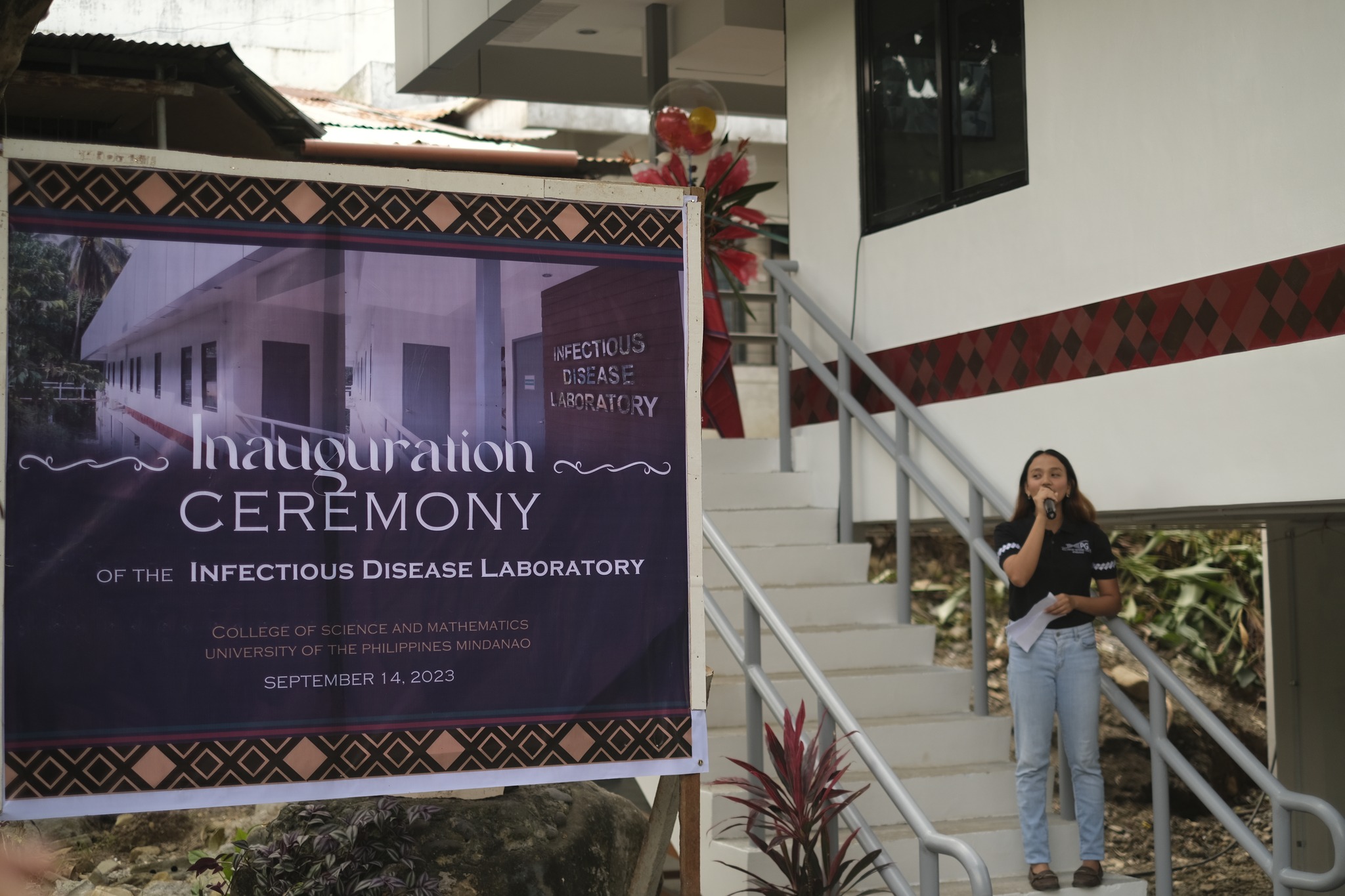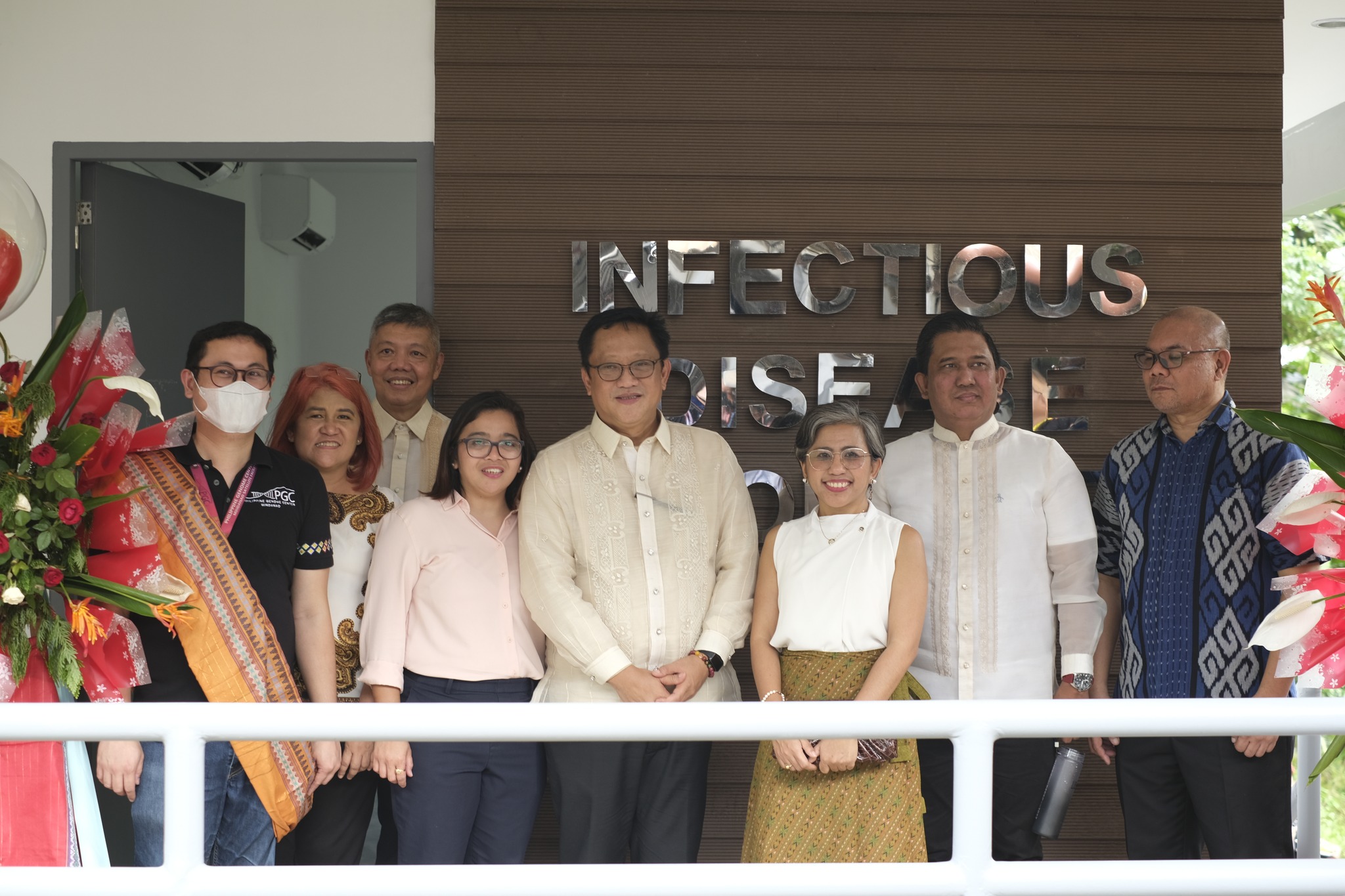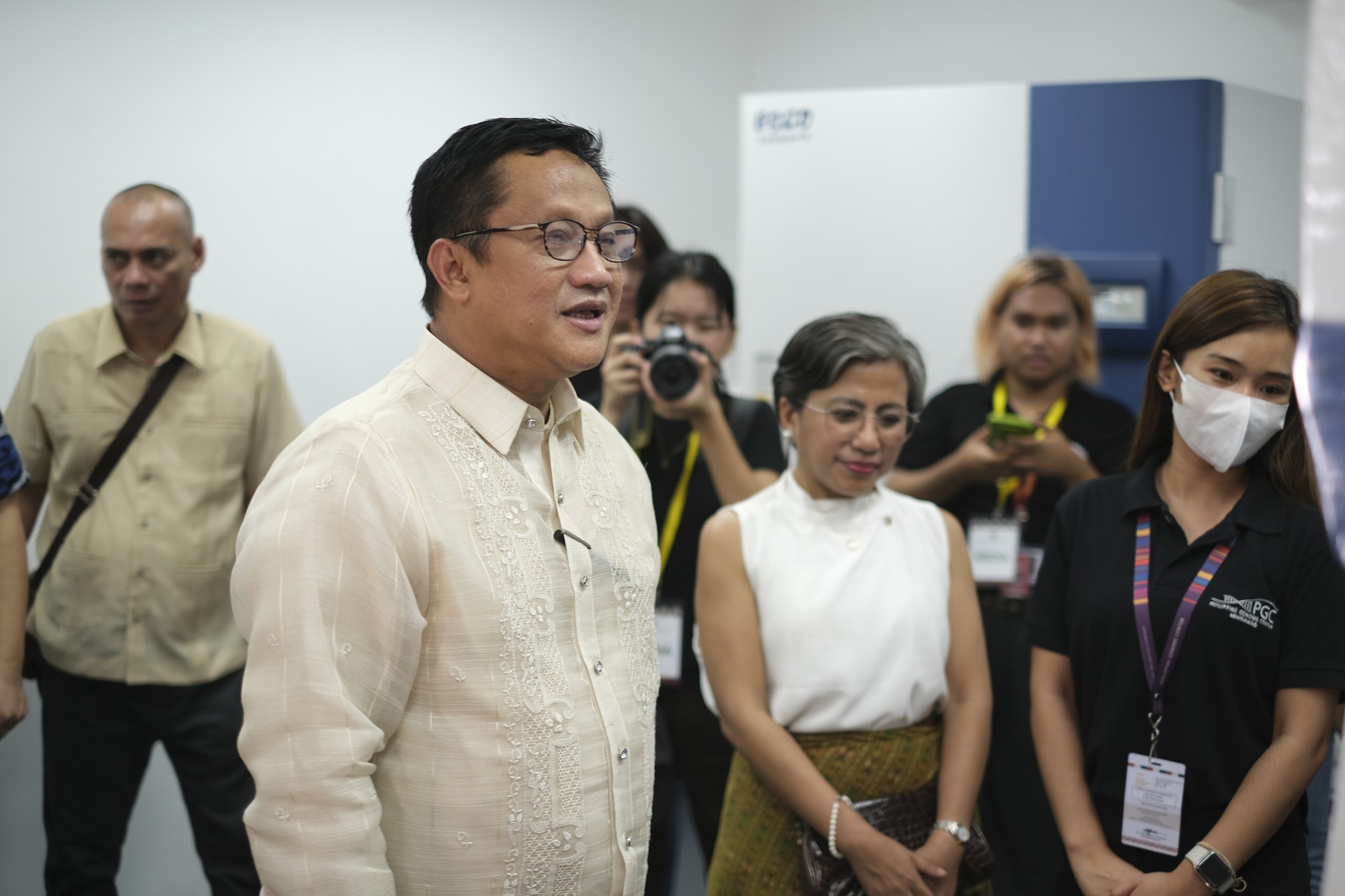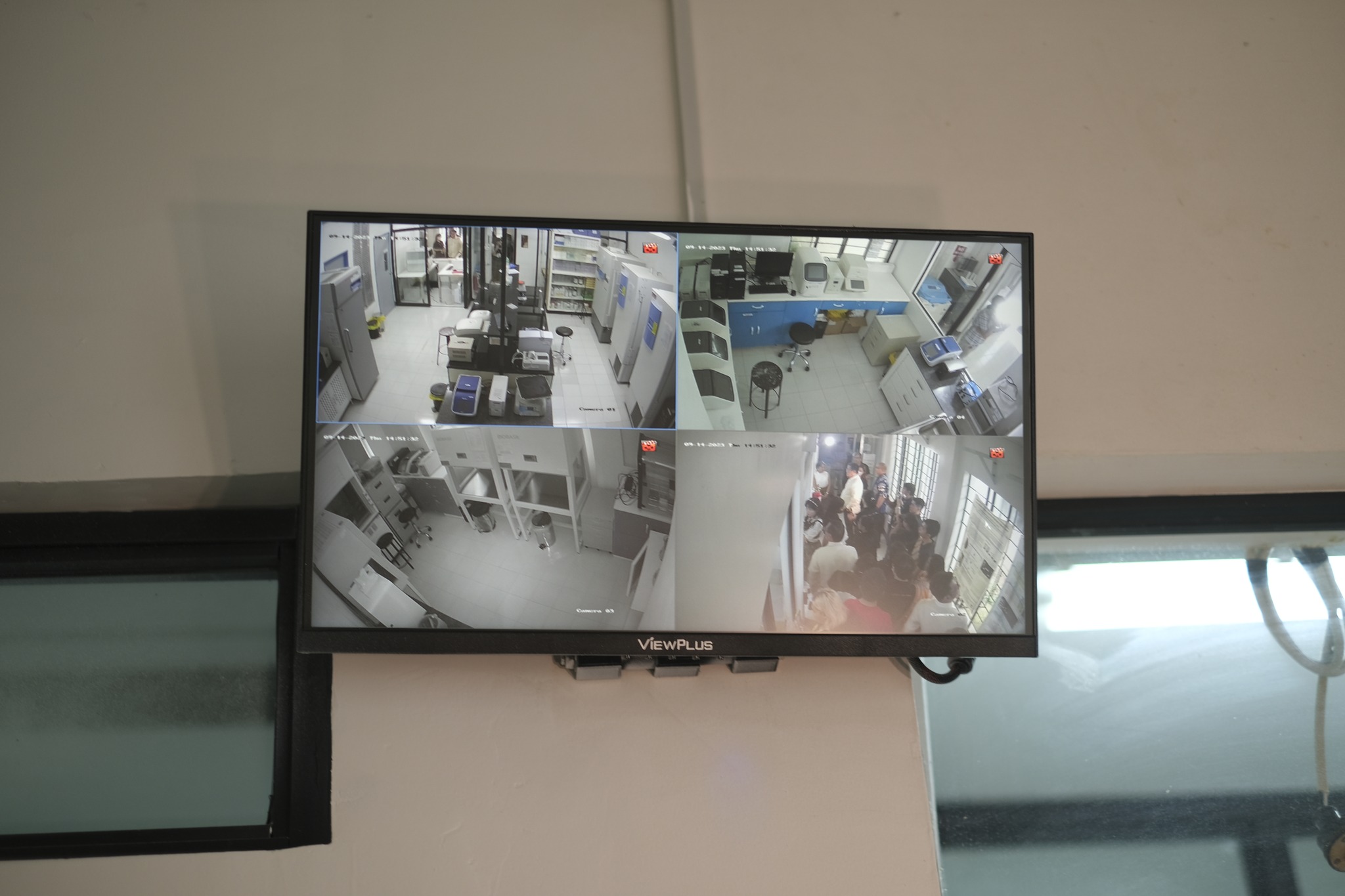Infectious Disease Laboratory
 |
 |
 |
 |
The University of the Philippines Mindanao (UPMin) held an inauguration of its Infectious Disease Laboratory (IDL) on September 14, 2023. Located in the College of Science and Mathematics, this lab is part of the university's new facilities inaugurated by new University President Angelo A. Jimenez, along with other guests.
The IDL will focus on research, training, and COVID-19 testing and will also aid in detecting infectious diseases in livestock, benefitting the agriculture sector, according to Dr. Joel Tolentino, the officer-in-charge of the Philippine Genome Center- Mindanao.
Since 2016, UPMin has conducted interdisciplinary research on various infectious diseases. The IDL aims to become the Mindanao Research and Innovation Center for One Health and a center of excellence for health research by 2030, connecting with the proposed Virology Institute of the Department of Science and Technology. This lab is part of UPMin's Mindanao Health Initiative, which includes establishing a College of Medicine and Davao City Public Hospital.
Photos by Noel Larios Jr/SA-UPMin PRO
Text by Alyssa Ilaguison/SA-UPMin PRO
Since 2016, UP Mindanao has conducted interdisciplinary research on infectious diseases, including zoonotic diseases, viruses (e.g., rotavirus, rabies, dengue, coronaviruses), bacteria (leptospires), and parasitic worms (Plasmodium, Schistosoma). Researches were also undertaken on porcine epidemic diarrhea virus, zoonotic bat pathogens, neglected tropical diseases, and antimicrobial resistance.
The development of the lab is parallel to various initiatives by other centers in the university, such as the Philippine Genome Center (PGC) Mindanao, founded in 2019, which was accredited as a COVID-19 training center for health and medical personnel by the Department of Health and the Inter-agency Task Force for the Management of Emerging Infectious Diseases (IATF-EID) and a testing facility for African Swine Fever (ASF) by the Department of Agriculture and its Bureau of Animal Industry (BAI).
In 2020, UPMin and its co-implementer Mapúa Malayan Colleges Mindanao also became a Niche Center in the Regions (NICER) for R&D of the Department of Science and Technology (DOST) for its research program Interdisciplinary Applied Modeling, Data Analytics, and Biology of Infectious Diseases (AMDABiDSS-Health). The center is now a health resiliency hub of UP Resilience Institute (UPRI) and known as the Mindanao Center for Disease Watch and Analytics (DiWA), which aims to promote the use of applied modeling, data analytics, and applied biological techniques to complement current approaches for disease surveillance, disease data analysis, and disease risk management.
Like previous initiatives of the university, the lab will leverage its partnerships with higher education institutions, national government agencies, local government units, and NGOs in Mindanao and beyond to work on common goals.
The Infectious Diseases Laboratory is envisioned to evolve into the Mindanao Research and Innovation Center for One Health and aims to become a center of excellence for health research by 2030. It is also envisioned to be the region’s link to the proposed Virology Institute of the Department of Science and Technology Industrial Technology Development Institute (DOST-ITDI), the country’s stand-alone laboratory for virology and vaccine development.
The new lab is a key component of one of six niche RDE initiatives of the university, the Mindanao Health Initiative, which consists of the establishment of a College of Medicine and the Davao City Public Hospital in UPMin.